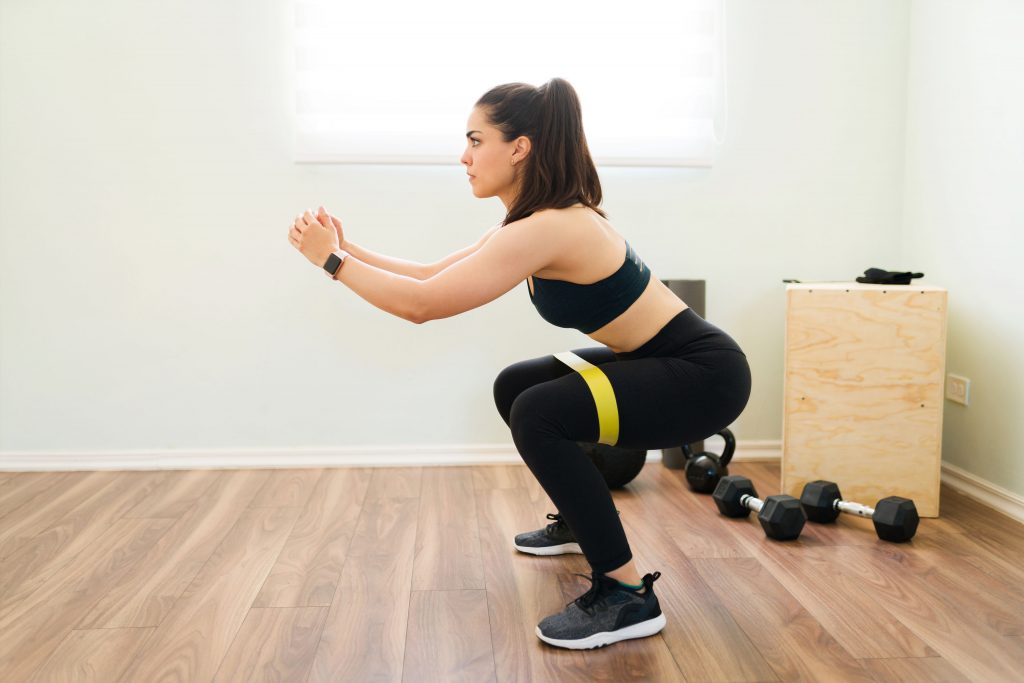
In times when bad news dominates the headlines, everyone is looking for a hack that will lift their mood.
We all associate exercise with a fit body. However, exercise is also vital to maintaining a healthy mind.
After you’ve finished a cardio workout, listen to your thoughts and your body. Do you feel better than you did earlier? Is your outlook a bit more positive now?
If the answer is yes to these questions, it’s not a hunch. It’s science.
Exercise releases neurotransmitters, including endorphins, endocannabinoids, and dopamine. These are our “feel good” molecules.
Backing It Up with Science
Many past studies have found that physically active people have a much lower risk of developing depression and anxiety than people who live a sedentary lifestyle. Traditionally researchers have focused on how working out helps you avoid bad outcomes rather than the upside, such as greater happiness and an improved mood.
Studies that explore the direct link between happiness and exercise have been emerging more recently.
In fact, a review in The Journal of Happiness Studies is a prime example of the shift towards studying the most positive aspects of this phenomenon. Researchers at the University of Michigan decided to aggregate and analyze 23 past studies of working out and happiness.
Although no single study had a large number of participants, when grouped together they were able to look at 500,000 people from a broad range of ages, ethnic backgrounds, and socioeconomic groups.
And sure enough, the researchers found that active people are happier than those who rarely exercise.
“Every one of the observational studies showed a beneficial relationship between being physically active and being happy,” said Weiyun Chen, an associate professor of kinesiology at the University of Michigan.

How Exercise Affects the Brain
Researchers that have studied the association between brain function and exercise have discovered one key finding: Exercise improves your mood because it fundamentally changes your brain, both when working out and after.
Like many things in life, improving the input means better output. When you exercise, your heart rate increases and more oxygen is pumped into your brain. A well-oxygenated brain is better at managing anxiety and depression. Additionally, exercise helps to generally boost your mental health.
Ever wonder why you feel more upbeat after a strenuous workout?
After 20 to 30 minutes of aerobic exercise your body releases endorphins. These chemicals interact with the receptors in your brain to lessen your perception of pain. Even a few hours after your workout routine is finished, other mood-enhancing chemicals like serotonin and dopamine are still boosting your mental wellness.
There are long-term benefits to your brain as well.
The short-term effects described above actually lead to improvements in the structure and function of your brain over time. People that work out regularly, for an hour a day, three times a week, benefit to the degree that they have a healthier brain.
Studies have found exercise may generate new neurons in the hippocampus. That’s the region of the brain responsible for memory, learning, and emotions.

How Resistance Band Workouts Boost Mental Health
When it comes to leveling up your mood, the key is to get your heart pumping with cardio exercise.
You may know of resistance bands as effective tools for strength training and toning your body. Did you know resistance bands are also great for cardio?
Resistance bands can be added to your cardio routine to make the experience more exciting as well as to increase the challenge.
For example, the Resisted Boxer exercise involves attaching your resistance bands to a door, facing away from the anchor point, and extending each arm out (like punching). You alternate your arms and keep the reps going for 60 seconds.
There are tons of creative cardio exercises you can do with resistance bands, and there’s a learning curve to go with it. To experience the benefits, you’ll have to go beyond the basic exercises most people do with resistance bands. It’s the perfect way to expand your horizons and get the full benefit from your exercise equipment.
[content-egg module=AmazonNoApi]
Conclusion
You may not be able to buy happiness, but you can work for it.
Scientists agree that cardio exercise is not only beneficial to your level of happiness, but also the condition of your brain. It’s a mood-lifter both during your workouts and later in the day.
While treadmills and exercise bikes are effective, they can make exercise monotonous if you use them too much. Resistance bands are great and often underrated as cardio workout tools. Try using resistance bands to up the challenge in your routine, and add to the fun as well.





